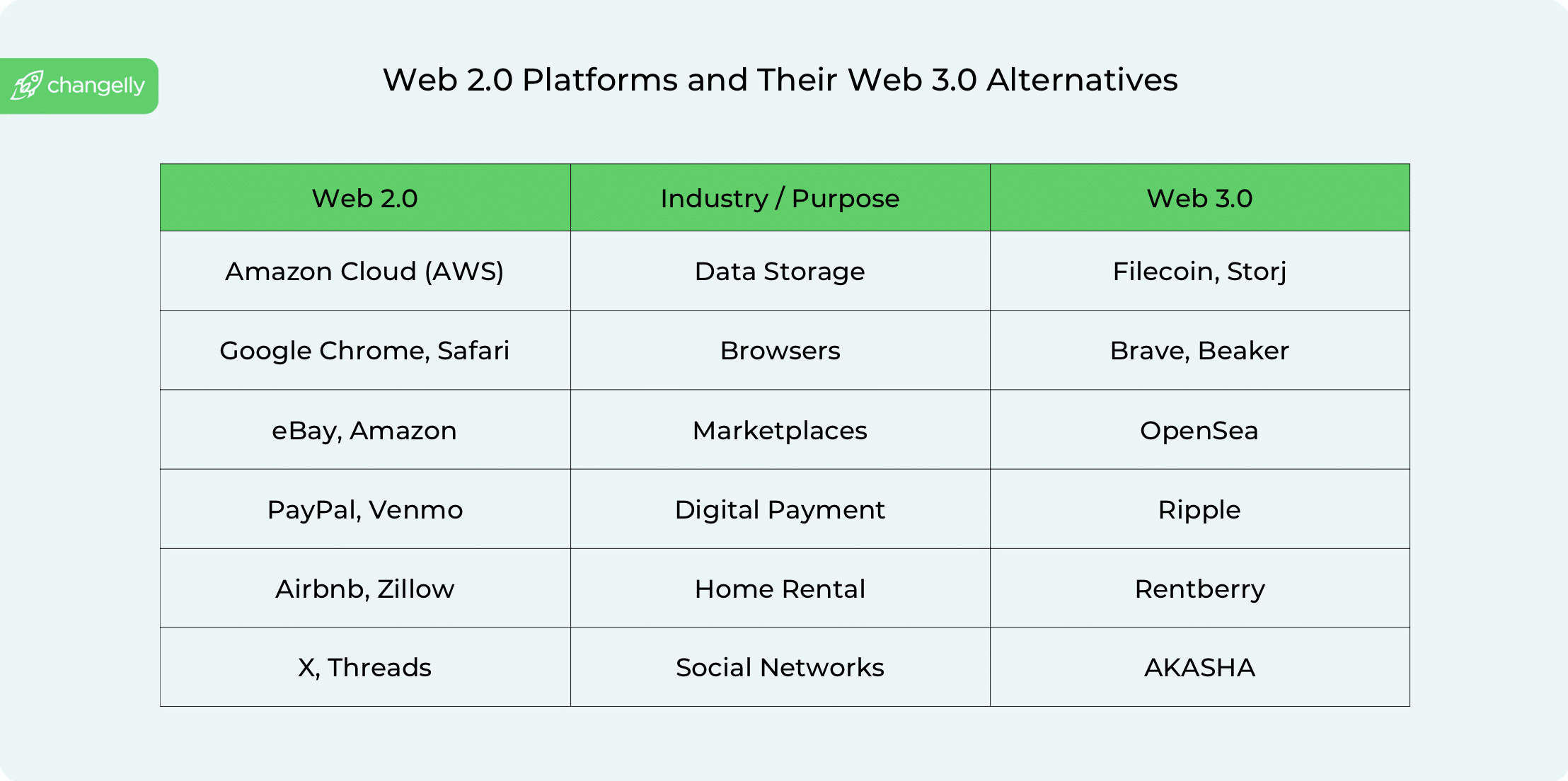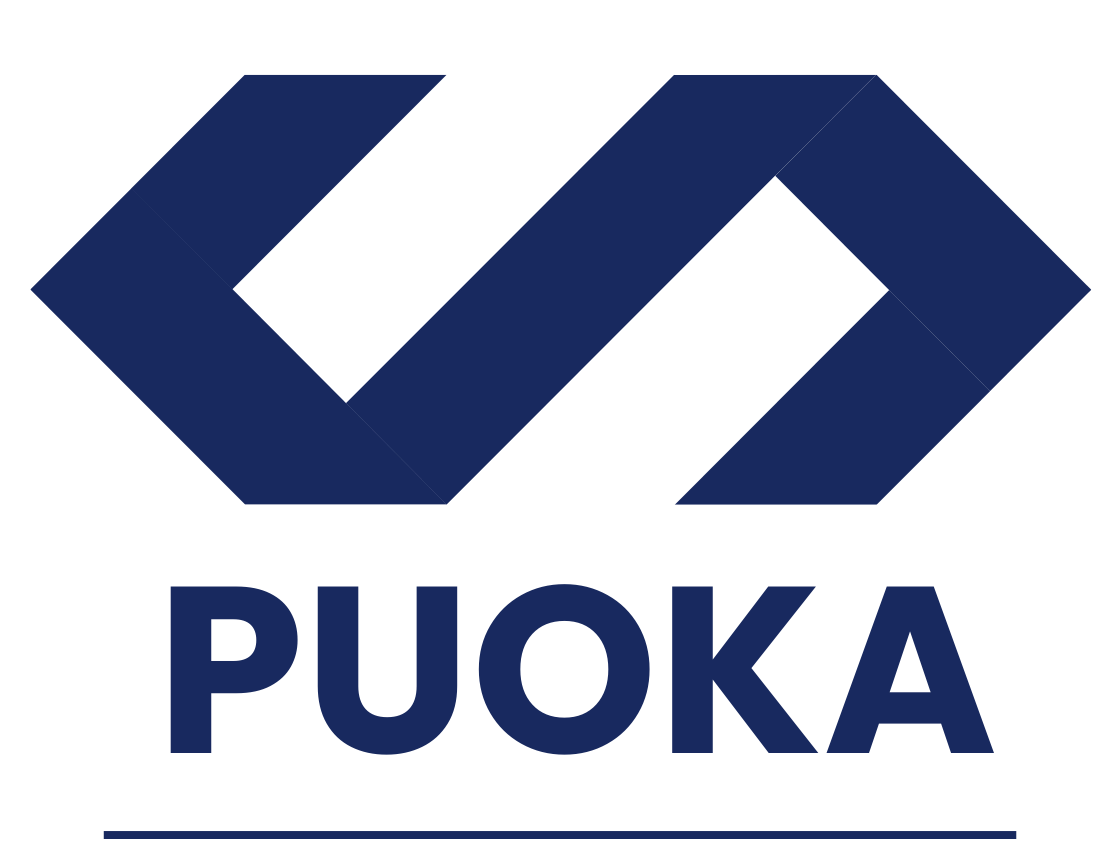Web3 technology is revolutionizing industries by introducing decentralized systems that enhance transparency, efficiency, and user empowerment. Unlike traditional centralized models, Web3 operates on blockchain networks, allowing users to control their data and digital assets. This shift is gaining traction as businesses recognize the importance of adopting blockchain solutions and Web3 applications to remain competitive in the evolving digital landscape.
What is Web3 Technology?
Web3 is the next evolution of the internet. Unlike the current centralized model of the world wide web, it runs on decentralized networks built with blockchain technology. This creates systems where data and transactions are secure, transparent, and under user control. Its principles include:
- Decentralization. No central authority; users control their data.
- Tokenization. Digital assets and tokens create value and enable ownership.
- User Empowerment. Individuals own their identity and online interactions.
This new framework supports innovative applications like e-commerce crypto payment solutions, other digital assets for online shopping, and systems that let companies and users interact in entirely new ways.

Top Web3 Companies: Examples of Successful Blockchain Solutions
Web3 companies are already making an impact in diverse fields. Here’s how they are creating value across industries.
Finance: Decentralized Finance (DeFi)
Decentralized Finance (DeFi) platforms like Aave, Compound, and Uniswap eliminate middlemen, allowing direct lending, staking, and trading. They improve liquidity and make financial services accessible globally.
There are also external solutions like Changelly’s Pure DeFi API that enable seamless integration of DEX services into other businesses, creating new opportunities and revenue streams for Web3 businesses.
Logistics: Blockchain for Tracking
Companies like FedEx, Maersk, and Provenance use blockchain to track goods in real-time. This increases transparency, prevents fraud, and streamlines supply chains.
Gaming: NFTs and the Metaverse
Platforms such as Axie Infinity and Decentraland introduce tokenized assets and in-game economies. They offer players true ownership of digital assets, boosting engagement and opening new revenue streams.
Healthcare: Blockchain for Data Management
Blockchain-based systems like Medicalchain and Guardtime ensure secure patient data exchange and protect privacy. They make it easier for healthcare providers to manage and share information.
Retail & E-commerce: Crypto Payments and NFTs
Crypto payments are transforming how businesses engage customers. Platforms like Shopify and Overstock accept Bitcoins for e-commerce, offering an ecommerce Bitcoin payment solution that increases payment flexibility and global reach. With ecommerce cryptocurrency payment extensions, companies can tap into growing communities of crypto-savvy shoppers.
Leading solutions like Changelly Pay further enhance this space by offering a crypto business account with features such as custom payouts, checkouts, invoicing, and comprehensive crypto processing services tailored for e-commerce.
8 key areas to review your WEB3 marketing!
Get the must-have checklist now!

Energy: Blockchain Energy Grids
Companies like Power Ledger and Grid+ use blockchain to create decentralized energy grids. These systems lower transaction costs and offer real-time energy pricing, making energy markets more efficient.
Insurance: Smart Contracts and Blockchain
Smart contracts are revolutionizing insurance with companies like Etherisc and Nexus Mutual. Automated claims processing and faster settlements reduce administrative overhead and improve customer experiences.
Real Estate: Tokenization of Assets
Tokenization allows fractional ownership and liquidity in real estate investments. RealT and Propy are leading this space, making property investments accessible to more users.
Supply Chain: Decentralized Supply Chains
Blockchain platforms like the IBM Food Trust and VeChain provide traceability and transparency in supply chains. They help reduce fraud and increase efficiency in global trade.
Knowledge-Based Business
Online platforms for selling digital and information products like OpenSea or Audius are revolutionizing global commerce. Solutions like Changelly Pay enable customers to pay in fiat currency while businesses receive payments in crypto, streamlining cross-border transactions. This approach reduces the complexities associated with traditional payment systems in different countries and mitigates the risks of fiat currency volatility.
Top 5 Crypto Wallets for Web3 Businesses
For companies looking to embrace Web3, choosing the right tools is essential. A reliable wallet can help businesses integrate blockchain solutions and accept payments with ease. Here are the top five wallets used in Web3 business:
- Coinbase Commerce. Perfect for businesses, this wallet lets you accept crypto and convert it to fiat instantly. It’s great for managing volatility.
- BitPay. A pioneer in the field, BitPay supports crypto invoicing and email billing. It simplifies the process of receiving payments.
- MetaMask. Known for its role in decentralized applications (dApps), this wallet is ideal for NFT payments and interacting with blockchain-based platforms.
- Ledger Business Solutions. Offers secure cold storage for businesses handling large-scale crypto transactions.
- Trezor. Best for long-term holdings and securing high-value assets, making it a trusted choice for many.
With these wallets, companies can use tools like a crypto payment API or a bitcoin payment API to easily manage payments and transactions.
Does Your Company Need Blockchain Solutions?
Web3 isn’t just about technology; it’s about transforming how businesses and users collaborate. It allows for greater efficiency, transparency, and user empowerment. Unlike in the past, where centralized systems controlled everything, Web3 puts control back into the hands of the users and their communities.
We’re already seeing development across industries—from DeFi platforms to decentralized e-commerce. Businesses now have tools like a crypto payment gateway API or a Bitcoin payment API to accept digital payments, connect with global customers, and reduce barriers. These innovations are creating a more inclusive digital economy where businesses can expect faster payments and lower transaction fees.
As Web3 adoption grows, businesses will need to adapt to these changes. Whether you want to integrate a crypto payments API into your store or explore blockchain-based solutions, now is the time to act. By embracing Web3, your company can lead the way in this new era of digital transformation.
Changelly offers a suite of APIs designed to make it easier for your company and community to interact with crypto and blockchain technology:
- Exchange API: Enables users to swap between 700+ cryptocurrencies on 170+ blockchains. Free integration and customizable fee structure.
- Fiat API: Give your customers access to fiat-to-crypto payments. 100+ fiat currencies and 200+ cryptocurrencies, all with flexible fees and free integration.
- Pure DeFi: Get access to our DEX Aggregator API. Suitable for Web3 wallets, DeFi trackers, and dApps.
- Changelly Pay: Implement our user-friendly payment solution that lets you accept 80+ cryptocurrencies with instant settlement and low fees.
By utilizing Changelly’s APIs, businesses can effortlessly incorporate crypto payments into their operations, positioning themselves at the forefront of the decentralized future.
Disclaimer: Please note that the contents of this article are not financial or investing advice. The information provided in this article is the author’s opinion only and should not be considered as offering trading or investing recommendations. We do not make any warranties about the completeness, reliability and accuracy of this information. The cryptocurrency market suffers from high volatility and occasional arbitrary movements. Any investor, trader, or regular crypto users should research multiple viewpoints and be familiar with all local regulations before committing to an investment.







